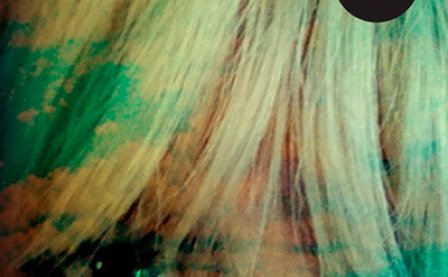There’s a moment in author John D’Agata’s About a Mountain when he briefly chronicles the history of Edvard Munch’s The Scream, detailing Munch’s relationship with death, the act of screaming, and the pain projected into his famous painting. D’Agata ends the moment outlining the use of Munch’s visual metaphor in the world of advertising, how it’s been used in ads to sell cars, for a caricature blow-up doll, for M&M’s. “Dark just got fun,” D’Agata quotes and, in the space of a few pages, chronicles the death and depletion of a metaphor, language’s seeming inability to last through time.
I keep coming back to this passage while listening to Dum Dum Girls’ Too True, if not specifically for the song “Rimbaud Eyes,” then also for the general sound and “emotional” themes the album projects.
Arthur Rimbaud, a 19th-century French writer, plays a large role in Kristin “Dee Dee” Gundred’s songwriting (well-documented here in Adrian Agacer’s review of Dum Dum Girls’ End of Daze), whether straight up invoking him on this album’s “Rimbaud Eyes” or on Daze’s “Season in Hell.” But it’s uncertain if any of this is actually processed. Rimbaud’s mysticism has generated more than a field of research into what exactly his mythos pertains to his influence. Summarizing from Carrie Jaurès Noland (writing about Patti Smith’s use of Rimbaud), Rimbaud’s essence (“don’t fall prey to sudden salvation”) carries “implicitly — and in some cases explicitly;” his decontexualization informed either likeness or kin in modern disconnection, the same sort of disconnection that Dum Dum Girls evoke through obvious influences other than Rimbaud: 1960s girl group pop, The Jesus and Mary Chain, or basically the same stuff that Black Tambourine is made of. In essence, it’s hard not to see where Rimbaud’s myth has been previously conjured. His short career in writing, his myth as a deviant — Rimbaud is probably the greatest poster child for the detached youth in rebellion.
So with that, what the fuck does “Rimbaud Eyes” mean?
This is where I feel D’Agata’s presence of dying symbolism take place, with Rimbaud’s name, myth, etc. directly invoked like a Poké Ball (sorry, I can’t do this without my own similes or metaphors) being called in to do someone else’s fighting. Rimbaud radically separated language from its meaning (the “improper” grammar and nearly untranslatable je est un autre). Without the decontextualization, it’s difficult to tell if I’m seeing Rimbaud, the band’s influences, or both run themselves to their linguistic end points. Is this tautology of the sunken-eye look and feel? Is this anything more than just easy invocation?
I love everything that Dum Dum Girls invoke, and yet nothing of what they do seems to mean anything to me the way their influences do. If “growth” and “maturity” of songwriting means stepping into more “electronic” territory (more processed drums than acoustic, basically all the same hallmarks of 80s-style production), I can’t see what any of these notions actually mean. With all apologies for using the word again, it’s that act of decontextualized language — including mythos, personality, and elements of sound that rely on the past — that provides new meaning for the corpse of anything, or here specifically Rimbaud’s. Patti Smith praised him as a poet, even though Rimbaud himself disavowed his poetic past, and it was her urge to take his mythos to challenge herself, society, and Rimbaud himself. Here? It’s “Lost Boys and Girls Club,” “Cult of Love,” and “Trouble Is My Name” (“Trouble is my name/ Is it your name too?”), endless clichés in songwriting, narrative, subject, and sound; while a cliché can provide an economy of language, it can also provide the road to metaphorical obsolescence. It’s unfair of me to call this an M&M’s commercial directly, but I don’t think it would be too far removed to at least claim that it’s on its way.
This is something I don’t take much joy in doing, ragging on a musician for employing easy metaphors, trashing the essence of whatever it is they were working for. I’ve done it much in the past, and I don’t intend on doing it much more. But while I could supply the obnoxious, useless paradox of “I don’t mean to be mean, but…,” I’d rather be honest: I do intend to be mean. I intend a form of criticism as cruelty against what I see as bland, easy, and unchallenging, if not for myself, then for Rimbaud’s own hatred of the sort. Or maybe what I should have learned from him: to seek the space where one induces piss and fecal matter into prayer, where unfeeling is the way of ultimate synesthesia, the willing entering and exiting of hell and blood, center by self-dissemination. If inspiration comes from someone who wrote “Why should the semblance of an opening/ Pale under the corner of a vault,” then it’d be most appropriate not to mimic any gestures, but to slice their throat.
To be in hell, to be lost, or to be exceedingly filled with truth? Somewhere else. But for Too True?
“Dark just got fun!”
More about: Dum Dum Girls




